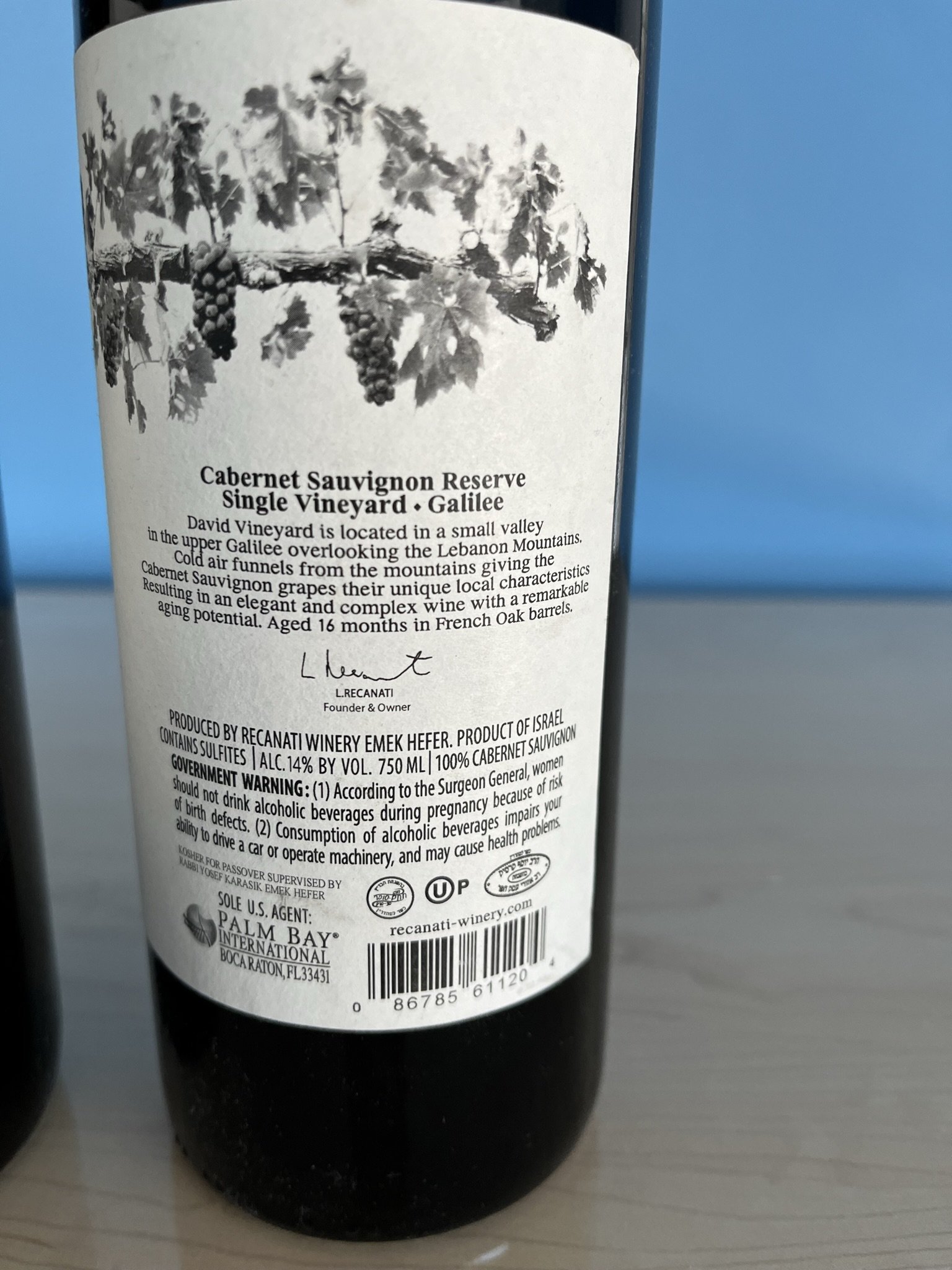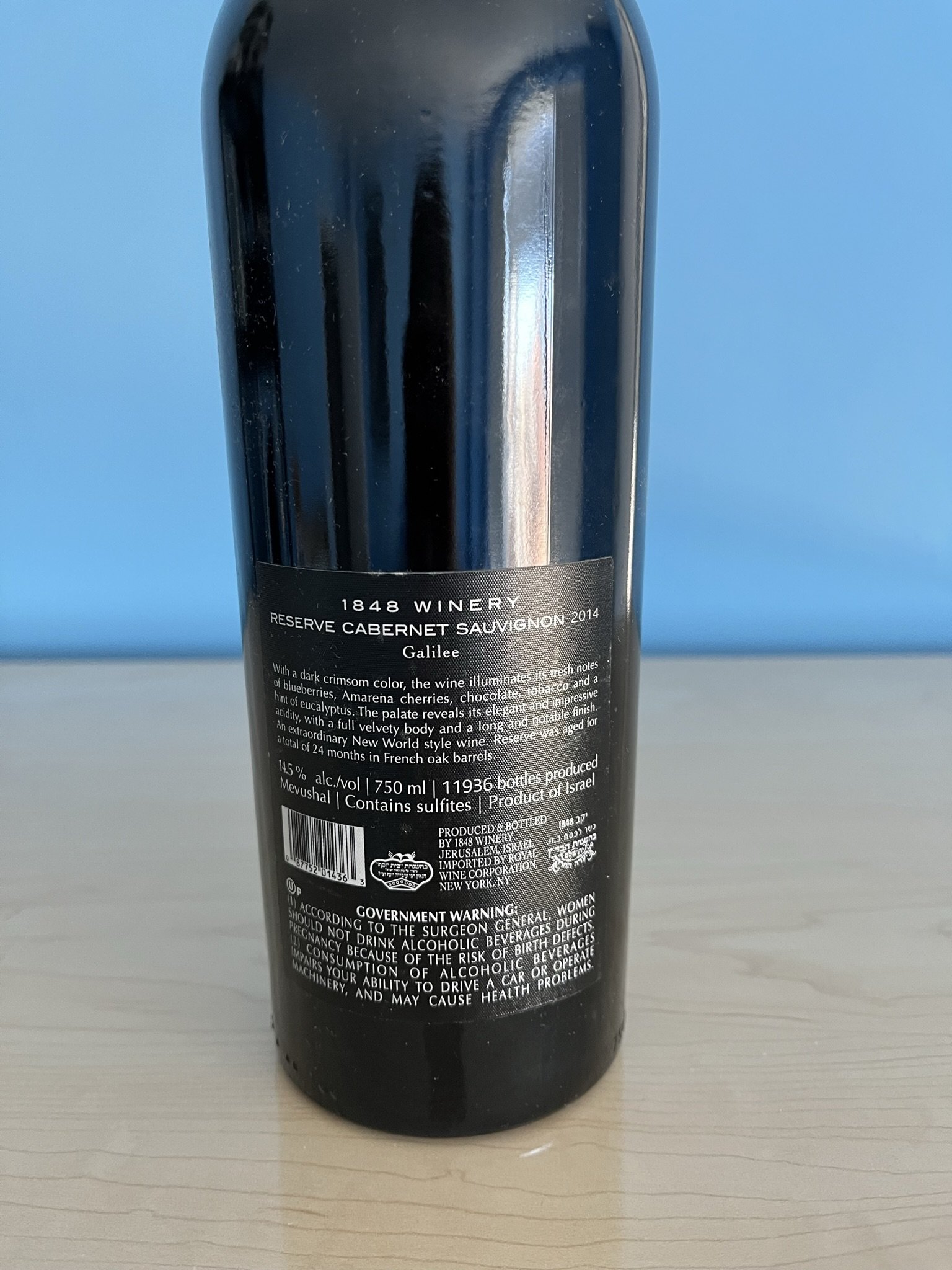Best guide to buying kosher wine when you really know nothing about it
Delicious Kosher wines from California, Israel and Spain. No need to settle.
You: “I don’t even know where to start about Kosher wine!”
Let’s talk about this.
There is a 2024 Updated version of this! Yay! Click here to get it!
If you still want 2023’s version, keep reading.
Another related post:
This is How you Celebrate with kosher wine when you know nothing about it! Click here!
First of all, congratulations!
Wait, what, why are you congratulating me? I just said I know nothing. You are in good company. Most people know nothing about Kosher wine. Many people don’t even know it exists.
Congratulations because you admit to knowing nothing! Congratulations again, because if you are reading this you are inquisitive enough to want to find out.
At it’s most basic, kosher wine is made in accordance with Jewish dietary law. Just like Old World wines (basically Europe, but read more from my post that discusses it if you want more information) have to follow specific wine production rules, so does Kosher wine. In the case of Kosher wine it should be made under the supervision of a rabbi. Whatever is added to the wine during production, must be Kosher. Oh, and only observant Jews may handle the wine during production.
If you keep kosher, you know all that I assume.
I once was asked by someone who kept Kosher, what non Kosher wine tasted like. I told them that there was no difference. No great mystery. There is good Kosher wine and not so good Kosher wine, just like every other wine. Absolutely no difference in taste. There is white wine, red wine, and sparkling wine. Yep, even Champagne. (That means it has to be made in the Champagne region in France. I trust you read my post on Champagne, but if you didn’t, here’s the link.)
Kosher wine is pretty much made wherever non Kosher wine is.
If you are buying Kosher wine to bring to someone who keeps Kosher, this is what you need to know:
Remember when I mentioned that Kosher wine has to follow certain rules. It actually has to prove it by being certified.
In addition, if you are bringing wine for Passover, it will need to say that the wine is Kosher for Passover.
Here are some examples:
Do you see the circle around the K?
That is an example. The P next to it tells you it is Kosher for Passover.
This bottle shows the circle around the U. That counts too.
Again, the P states that it is Kosher for Passover.
Sometimes it is a small symbol. It’s there though.
If you can read Hebrew, it also states the information there. Just saying.
There will be times when you see a Kosher wine in a section that is not marked Kosher.
You will often find this wine with the other Spanish wines. It may or may not be with the Kosher wines as well.
It’s a delicious wine. There is a more expensive version, but I actually prefer this one.
Baron Herzog are reliable Kosher wines that I have enjoyed. The ones shown here are not particularly expensive.
They have a number of different price points, so explore if you wish.
There is also a term that you may want to be aware of. Mevushal.
See it there.
Under the Kosher for Passover.
Mevushal means cooked. It does not change the taste of the wine. If a wine is Mevushal, it can be served by anyone and remain Kosher. This is probably more than you want to know, but if you are buying the wine for someone observant, play it safe and make sure it is Mevushal.
Kosher wines, just like non-Kosher wines, can be dry or sweet. With both types, most people prefer a dry wine.
HOWEVER, some people who grew up drinking a very sweet Kosher wine for Passover remember it fondly. Some people believe that it is the only wine you can drink for Passover. NOT TRUE. I, personally, won’t drink it or buy it. I feel that if someone likes that type of wine, they are welcome to buy it themselves. You do you.
Some sweet wines can be dessert wines. They can be delicious.
These are sweet fruit wines. They also come in different flavors.
I mix these with Cava and frozen berries. Read about it in my post The Best Wine Drink to Start the Party off right that isn’t Champagne. Just click the title. It’s delicious.
There are thousands of Kosher wine options. If you are bringing it to someone who is observant, follow the guidelines above.
If you want to just drink a delicious Kosher anytime, feel free. I have seen Kosher wines on a wine list at a decidedly non kosher restaurant. No reason not to.
Remember, what I said that most people don’t know anything about Kosher wine. I wanted to find out what ChatGPT knew about it. While some information was correct, it stated that you have to have Kosher wine with Kosher food. HAHAHAHA! It’s not just people who don’t know. I kindly corrected it.








